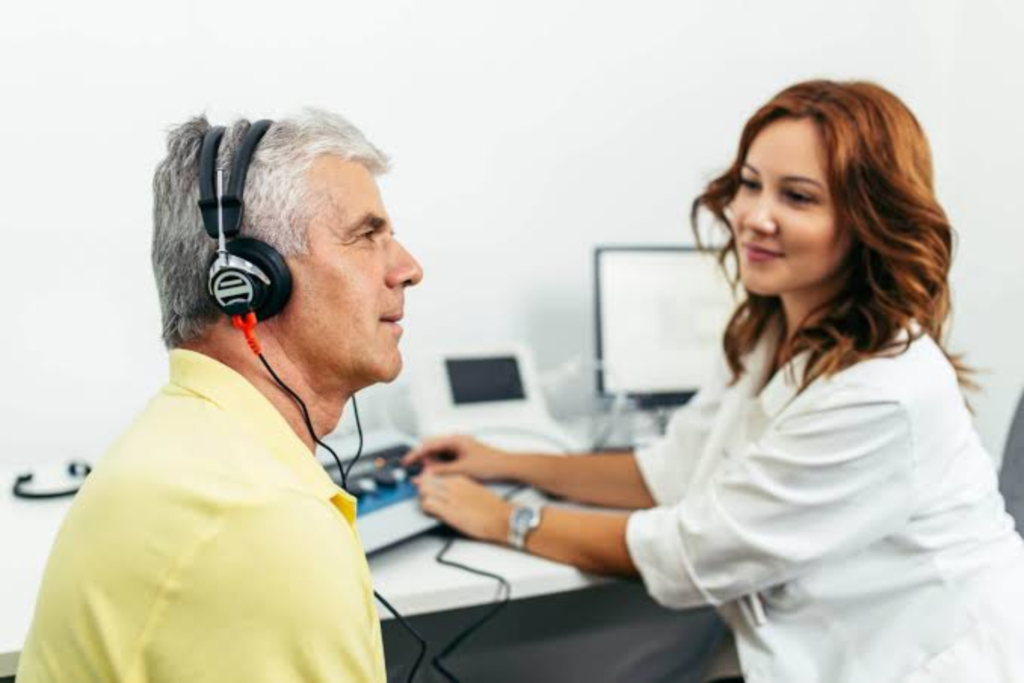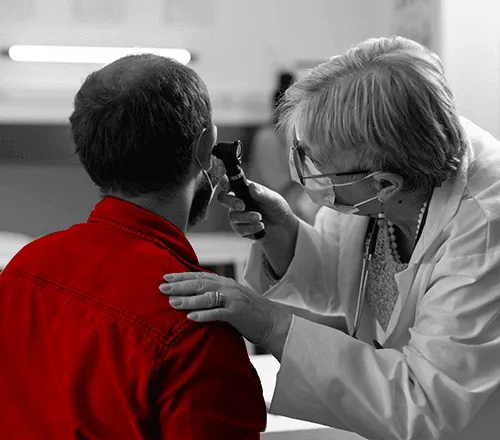Audiometry tests are essential for assessing hearing health, diagnosing hearing loss, and determining the best treatment options. Whether you’re scheduling your first hearing test or preparing for a follow-up, knowing how to prepare can help ensure accurate results and a smooth experience.
What is an Audiometry Test?
An audiometry test is a non-invasive hearing assessment that measures your ability to hear sounds at different pitches and volumes. It is performed by an audiologist and typically includes:
- Pure-Tone Audiometry: Measures your hearing sensitivity using tones at various frequencies.
- Speech Audiometry: Evaluates your ability to hear and understand speech.
- Tympanometry: Assesses the function of the middle ear.
This test helps identify hearing loss, its severity, and potential causes, such as ear infections, noise exposure, or age-related hearing decline.
Why is an Audiometry Test Important?
Hearing loss can significantly impact your quality of life, affecting communication, relationships, and even mental health. Early detection through audiometry tests allows for timely intervention, which can:
- Prevent further hearing deterioration.
- Improve communication and social interactions.
- Provide access to appropriate treatments, such as hearing aids or surgery.
How to Prepare for an Audiometry Test
Before the Test
Schedule an Appointment:
Contact a licensed audiologist or hearing clinic near you.
Choose a time when you’re well-rested and relaxed.
Avoid Loud Noises:
Stay away from loud environments (e.g., concerts, construction sites) for at least 24 hours before the test.
Prolonged exposure to noise can temporarily affect your hearing and skew test results.
Clean Your Ears:
Ensure your ears are free of excess earwax, as blockages can interfere with the test.
Avoid using cotton swabs; instead, consult your doctor for safe earwax removal.
Bring Relevant Medical Records:
If you have a history of ear infections, surgeries, or hearing issues, bring your medical records to the appointment.
Prepare Questions:
Write down any concerns or symptoms you’ve noticed, such as tinnitus (ringing in the ears) or difficulty hearing in noisy environments.
During the Test
Stay Calm and Focused:
Follow the audiologist’s instructions carefully.
The test is painless and takes about 20-30 minutes.
Wear Comfortable Clothing:
Avoid clothing or accessories that may interfere with the headphones or earbuds used during the test.
Communicate Clearly:
If you don’t hear a sound or have trouble understanding speech during the test, let the audiologist know.
After the Test
Review the Results:
The audiologist will explain your results using an audiogram, a graph that shows your hearing thresholds.
Ask questions if anything is unclear.
Discuss Next Steps:
If hearing loss is detected, the audiologist may recommend further tests, hearing aids, or other treatments.
What to Expect During an Audiometry Test
During the test, you’ll:
Wear Headphones or Earbuds:
You’ll listen to tones and speech through these devices.
Respond to Sounds:
Raise your hand, press a button, or say “yes” when you hear a sound.
Undergo Tympanometry:
A small probe will be placed in your ear to measure middle ear function.
Receive Immediate Feedback:
The audiologist will discuss your results and recommend next steps.
Tips for a Successful Audiometry Test
Arrive Early:
Give yourself time to relax and complete any necessary paperwork.
Avoid Caffeine:
Caffeine can increase anxiety, which may affect your ability to focus during the test.
Bring a Companion:
A friend or family member can provide support and help you remember the audiologist’s recommendations.
Stay Relaxed:
Deep breathing exercises can help calm your nerves before the test.
Follow Up:
If hearing aids or further treatment are recommended, schedule follow-up appointments promptly.
Frequently Asked Questions (FAQs)
Q1: How long does an audiometry test take?
- The test typically takes 20-30 minutes, but allows extra time for consultation and discussion of results.
Q2: Is the test painful?
- No, audiometry tests are non-invasive and painless.
Q3: Can I eat before the test?
- Yes, you can eat normally before the test. However, avoid caffeine and heavy meals that may make you feel sluggish.
Q4: What if I have a cold or ear infection?
- Inform your audiologist. Congestion or infections can affect test results, and you may need to reschedule.
Q5: How often should I get a hearing test?
- Adults should get a baseline test at age 50 and follow up every 3-5 years. Those with hearing loss or risk factors may need more frequent tests.
Conclusion
Preparing for an audiometry test doesn’t have to be stressful. By following the tips and steps outlined in this guide, you can ensure accurate results and take proactive steps toward better hearing health. If you suspect hearing loss or haven’t had a hearing test in years, don’t wait—schedule an appointment with a licensed audiologist today.






